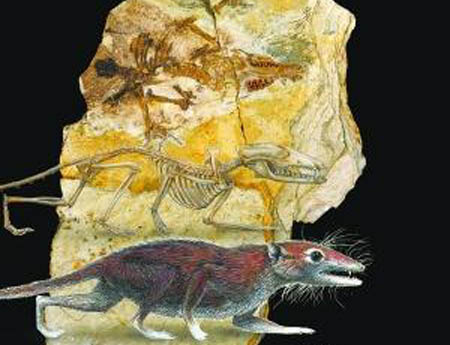(Ecns.cn)--A group of scientists, including three Chinese and several Americans, recently discovered a partial skeleton of a small, shrew-like mammal in the famous fossil beds of Liaoning Province, China, according to the Beijing Evening News, Thursday.
According to the scientists, the mammal fossil is so far the earliest eutherian (placental) mammal fossil found, and it can be traced back to 160 million years ago. The scientists named it the "Juramaia sinensis," or "Jurassic mother from China."
Weighing only about 15 grams, this mammal fossil probably ate insects. The preserved part of the skeleton, from the tip of the snout to about midway down its back, indicates that it was probably a skilled climber that scrambled through the trees after an invertebrate snack.
Other fossil findings also include an incomplete skull, impressions of residual soft tissues such as hair, and Juramaia's complete set of teeth as well as its forepaw bones. These features led the paleontologists to conclude that the animal was closer to living placentals on the mammalian family tree than to pouched marsupials, such as kangaroos.
This finding has an important meaning for scientists in researching the evolution of mammals on earth, said a Chinese scientist.


















